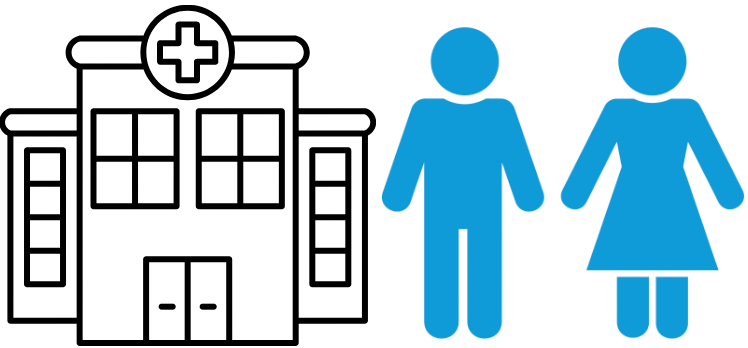- 459 Hume Street Collingwood, ON, L9Y 1W9
- 705-445-2550

- Donate
Visitor Policy

CGMH is committed to creating an environment that is supportive of patient and family centered care. We believe it is important for patients to experience the support of family and friends and to be treated as an individual with unique needs. We are committed to providing a safe, secure, and comfortable environment for our patients and staff.
- Visiting hours are flexible to accommodate the patient circumstance; there are no prescribed hours.
- Visiting is based on the condition, care needs and expressed wishes of each patient. Patients admitted to the hospital are to have no more than 2 visitors at a time. Special consideration may be provided for patients that are palliative/end of life in consultation with their Care Team.
- Visiting may be adjusted in timing and numbers based on the clinical care needs of the patient. This should be planned in collaboration with the patient, family and inter-professional care team. In situations where patients share rooms, this negotiation will include the other patient(s) and his/her family. To ensure safety, considerations will also be given to the physical limitations of the space.
- Patients in the Emergency Department are to have no more than one visitor at a time. This reflects the current space pressures and physical limitations within the hospital's Emergency Department.
- Between 2000 and 0600 hours visitors must enter through the EMERGENCY DEPARTMENT entrance. The department will be notified to expect visitors arriving shortly on the unit. Visitors will be instructed to report directly to the nursing station of the inpatient unit. Visitors must sign in on the unit and put on a hospital issued mask which must be worn for the duration of the visit, while in the patient's room.
- Overnight visiting must be prearranged with the patient's nurse and Charge Nurse. Consent must be obtained by the other patient(s) sharing the room prior to agreeing to have visitors stay overnight with a patient. Overnight visitors must respect the privacy and sleep requirements of all patients in the room.
- Visitors who are feeling unwell; have an infection; have symptoms of respiratory illness, symptoms of flu like illness or communicable diseases should not visit.
- Visitors must perform hand hygiene with soap and water or alcohol based hand rub before and after visiting a patient.
- Children (<14 years) as visitors must be directly supervised by an adult, who is not the patient.
- Visiting may be interrupted to provide patient care, treatments and therapy as requested by inter-professional health care team members.
- Visiting may be restricted to protect the privacy rights of other patients or to maintain safety and security.
- Visiting hours may be restricted or cancelled in the event of an infection control outbreak, emergency situation or pandemic.
Please note: The hospital cannot secure and is not responsible for visitor's personal belongings. Visitors are asked not to bring personal belongings to the hospital when visiting a patient. Patients should be encouraged to send valuable belongings home with family members.
Who can I speak to if I disagree with a decision for my situation?
If you are declined approval by the unit/clinic manager, but feel that you should be eligible for additional visitors (more than two on an inpatient room), you can contact CGMH's Patient Relations at 705-445-2550 ext. 8706 or patientrelations@cgmh.on.ca.
While an exemption may not be possible, the Patient Relations team will help work with you to understand if there is information that the team was not aware of when making their decision.
Could visiting be stopped again?
Yes. If an outbreak is declared on a unit, visitor restrictions may put in place.
Thank you for continuing to partner with CGMH to keep everyone safe. For your health, that of your loved one currently in hospital, along with the employees caring for them, we strongly encourage you to:
- Clean your hands frequently with hand sanitizer or soap and water.
- Stay home when sick.
Masking in Hospital
Effective December 15, 2025, Collingwood General and Marine Hospital (CGMH) has reintroduced universal masking in all clinical treatment rooms, waiting rooms and areas, and patient rooms, due to an increase in respiratory illnesses (COVID, influenza and RSV) in the region.
Patients with cold or flu-like symptoms, or a fever, will be asked to wear a mask throughout their visit to help protect others. Thank you for your cooperation as we all work together for the protection of our patients and staff.

